Model and activist Jillian Mercado wants to change the way Hollywood sees disabilities
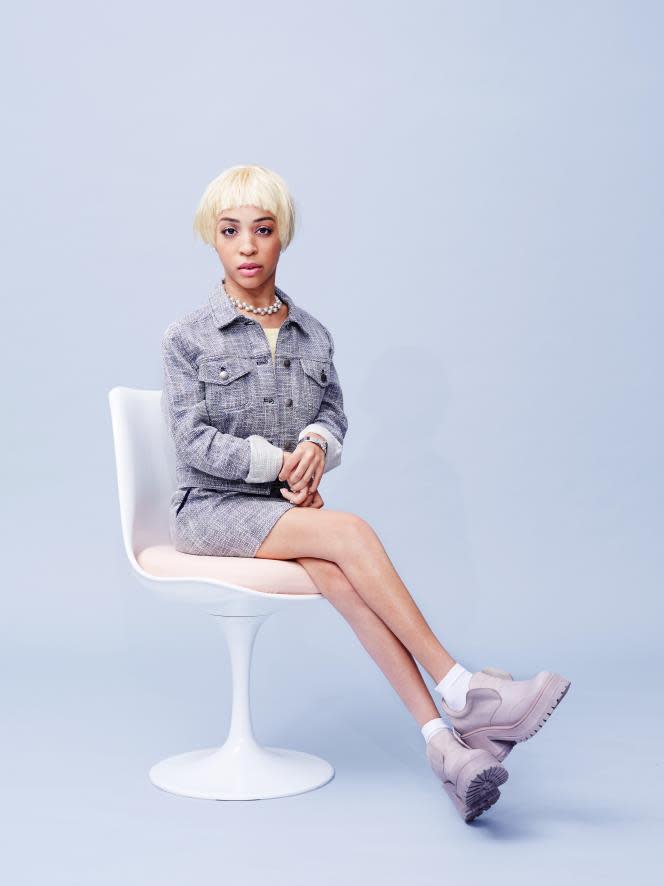
If you haven’t heard of Jillian Mercado yet, you will soon. This model, activist, and fashionista is now preparing to enter the acting world, and her track record for hard work and major success is nothing short of inspirational. Mercado is intimidating not only because of her striking good looks and unique experiments with style — her hair is almost always a different length and color — but also for the inner confidence and passion she exudes when she enters a room. Mercado is one of the first highly successful models with a disability and has worked to represent the large population of people with disabilities who have been historically excluded from the fashion world.
Growing up on New York City’s Upper West Side, the daughter of a dressmaker and a sometimes shoe salesman, Mercado was a little girl in love with the fashion industry. By the age of 3, she was in a wheelchair with what was eventually diagnosed as spastic muscular dystrophy. She never saw models who looked like her and took it upon herself to pioneer a change.
At 30 years old, and with credits that include high-ranking campaigns for giant companies like Diesel and Nordstrom, and as the face of Beyoncé’s online store, Mercado has transcended the boundaries she observed as a kid and built a fanbase of 85,000 followers on Instagram. She uses her platform to post live makeup tutorials and workouts, as well as to share basic frustrations on such topics as discomfort over people staring at her while on the street and a lack of accessibility on the subway. Many supportive comments come from people across the globe, thanking her for paving the way.
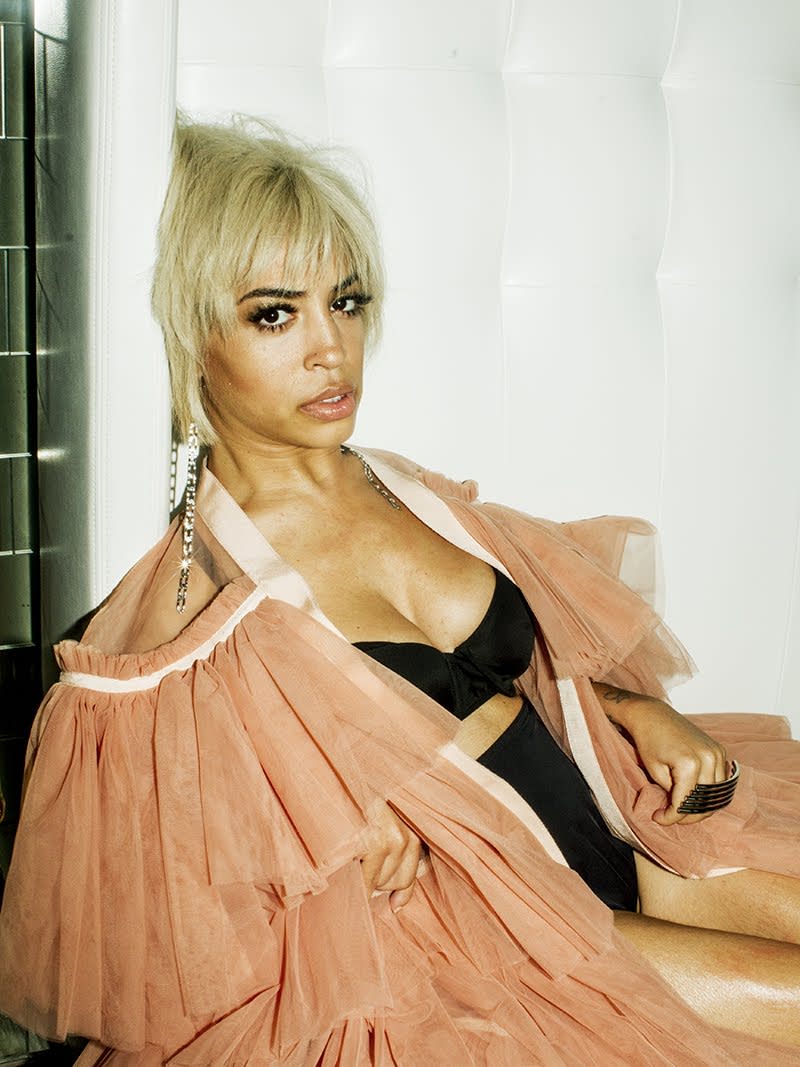
Yahoo Lifestyle spoke with Mercado about how she pursues her dreams. Though she says modeling and fashion are still her first loves, she is now, with the help of her high-powered reps at the William Morris Endeavor talent agency, delving into the acting world — and she’s ready to make some big waves.
Yahoo Lifestyle: Your modeling agency, IMG, represents everyone from Gisele Bündchen to Kate Moss to Heidi Klum. How has your career changed since you started working with IMG a few years ago?
Jillian Mercado: First of all, let’s just sit with that comment real quick! Being in an agency with those iconic models, it just shows you how diverse the agency actually is. My life has changed so much since being signed with the biggest agency in the world. Not only do they fight for me in my mission to diversify fashion, but they are also family to me. It’s rare to have an agency that truly cares for each and every one of their models, and it’s a blessing, to be honest. Most importantly, they believe in me. They believe that little by little we do need to realize that inclusion is very important. It’s something that I talk about all the time.
This industry has a reputation for not always being a positive place for women, but it seems you’ve really found a sense of belonging there. What do you attribute that to?
It’s very true, and I think that we are in a great time of our lives where we can be vocal about it. I’ve always loved the fashion industry — everything about it: the good, the bad, and the crazy. I’m a visual person, and it enriches my mind every single day. I feel at home every time I do anything regarding fashion, and I think the love that I have for the industry helps me prove to people that it does not have to be negative all the time. It goes beyond the industry: Yes, I do love the fashion world, but I think that being positive in a place that has a reputation of negativity really helps the soul. If you love what you do, that energy will travel miles and eventually all around the world. I surround myself with positive energy everywhere because honestly, I don’t have time for negativity. No one should.
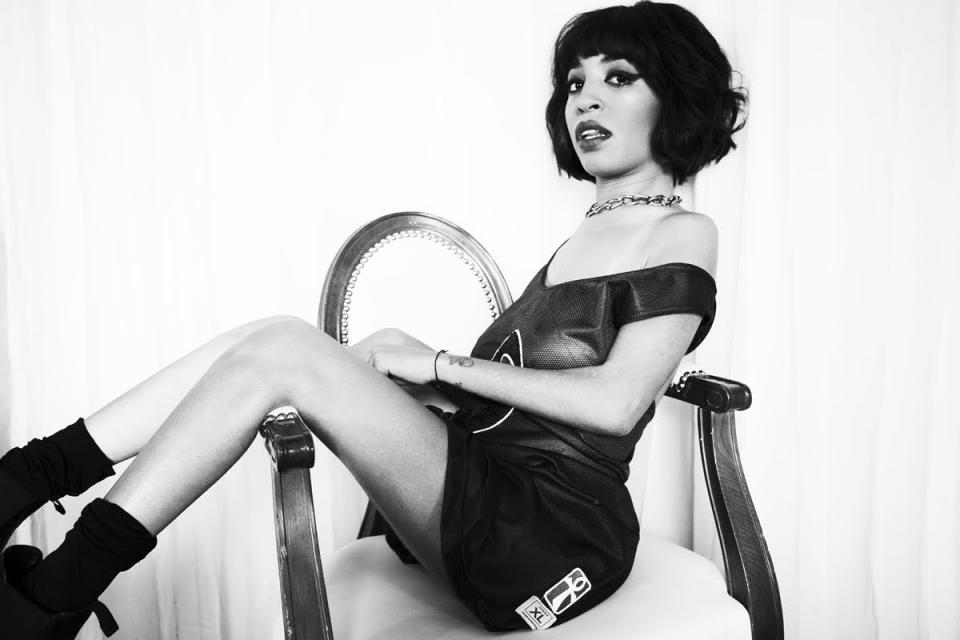
What is a main struggle you still face in the modeling world as a person with a disability? Has anything improved since you started?
I honestly think that whoever started with the idea of categorizing having a disability as a negative thing really affected everyone’s mind. It’s all about perception. Sure, there are moments where I struggle a lot being someone who has a disability, but whoever is reading this and has a different lifestyle than the general public knows that we are very creative people. It’s how we survive. So I use that creativity in the modeling world as well, mentally and physically. We are starting a conversation about inclusivity. So hopefully I am shining a huge light on it to continue to move it forward; it’s literally just the beginning, and there is much work left to do.
What made you want to try to branch out into acting?
It has always frustrated me when people who do not have a disability get hired to play somebody with a disability, rather than someone who has that disability to begin with. I always believe that if you have an opportunity to do something, go for it. Yes! I have the privilege to say that I’m also signed to WME, which is another huge entertainment agency. I have worked so hard to get to where I am, so if I let this opportunity go, it would be absolutely my fault. So I’m diving in!
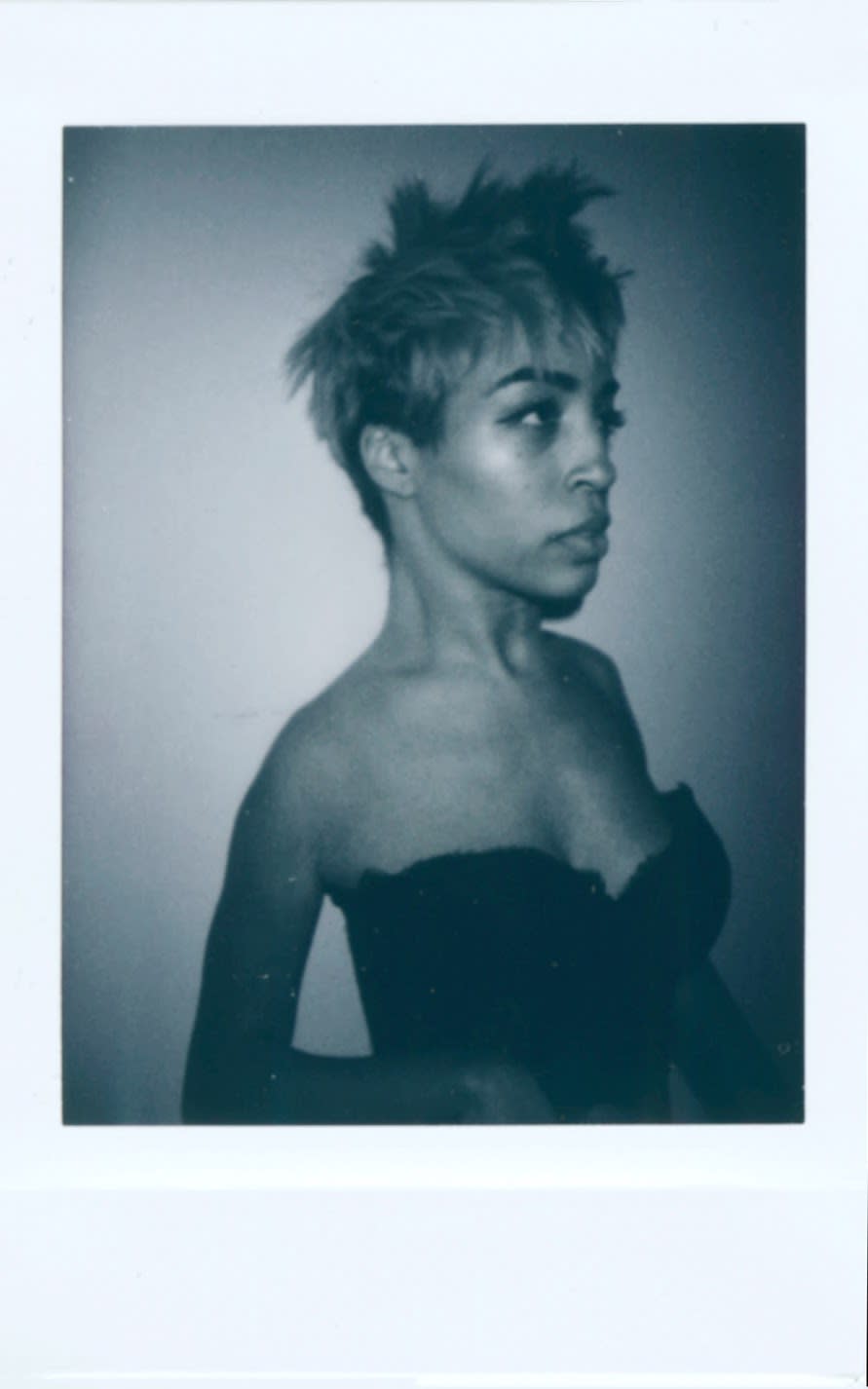
How do you think Hollywood can take steps toward normalizing diversity?
Social media has definitely helped with creating conversations about normalizing diversity and inclusion. People are tired of not seeing themselves in mass media. It gets boring after a while, and I think we’ve just reached a breaking point. Our voices are being heard in every part of the world. Since I’m always someone who puts positivity first, I know that Hollywood can and will! While I’m alive and well, I will never stop talking about it, and I know that others have followed in continuing the conversation. It’s not OK to not want to diversify what we can see in the media.
What are some of the excuses you feel casting directors use for not hiring disabled actors?
There are many excuses that I’ve heard from casting directors that confuse me. It’s easy for people not to open the conversation up because it’s always been this way, but not healing the wounds will only make them bigger and worse for everyone. It’s not OK when the third most sizable minority in the world is not being represented in mass media. It’s just not OK. I’ve heard things like “It’s not in the budget,” assuming that I need an assistant or that I won’t be able to memorize lines. To be honest, if I needed an assistant, that’s still no excuse. I am very sure that when they hire actors or actresses who played someone with a disability, they have to hire a coach to do so. So right there, it’s a really bad excuse. We all should have the opportunity to be great in any career we choose. If we are talented, that should be enough. Your disability shouldn’t be a roadblock but something that enhances you as a person. Think of it as a chance to be creative. Besides, movies that have the conversation of disability in them have won Academy Awards, so we know they can make money. That’s a fact!
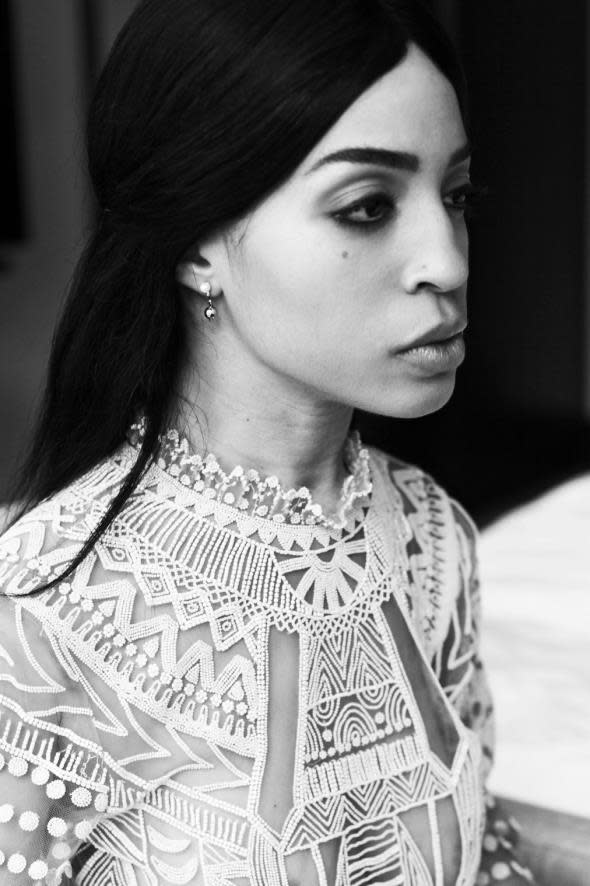
There have been a lot of conversations on what language we should be using when discussing disabilities. What language do you prefer?
Yes, this conversation is one of my favorite ones to have because it’s so important that people realize that we have been labeled for such a long time that people assume we all prefer the same language. It’s unfair to assume, so I always suggest that people ask. If you must call me something other than my own name, I prefer you say that I have a disability. For example, “Jillian, who has a disability…” I don’t identify myself with any other form than that one. Not because all the other words make me feel less-than, but just because this is better for me. I know many people who have different preferences, and that’s OK as well — just ask them.
Your career path has taken so many thrilling leaps. What has been the highlight if you had to pick one?
It really has, and I’m extremely excited to see what the future holds for me. Definitely stay tuned on my website manufactured1987.com because I will be venturing off into an exciting new journey, and that information will only be available on that site.
There are so many highlights of my life as a model. Being a muse for Beyoncé was definitely one, but she was second to meeting the Obamas and being able to visit the White House three times — experiences which I will never, ever forget.
Read more from Yahoo Lifestyle:
Mom defends disciplining her daughters with a time-out on the supermarket floor
Little boy says goodbye to dying sister in heartbreaking photo: ‘He doesn’t want to leave her side’
5 women-focused charities that celebs support — and you can too
Follow us on Instagram, Facebook, and Twitter for nonstop inspiration delivered fresh to your feed, every day.
